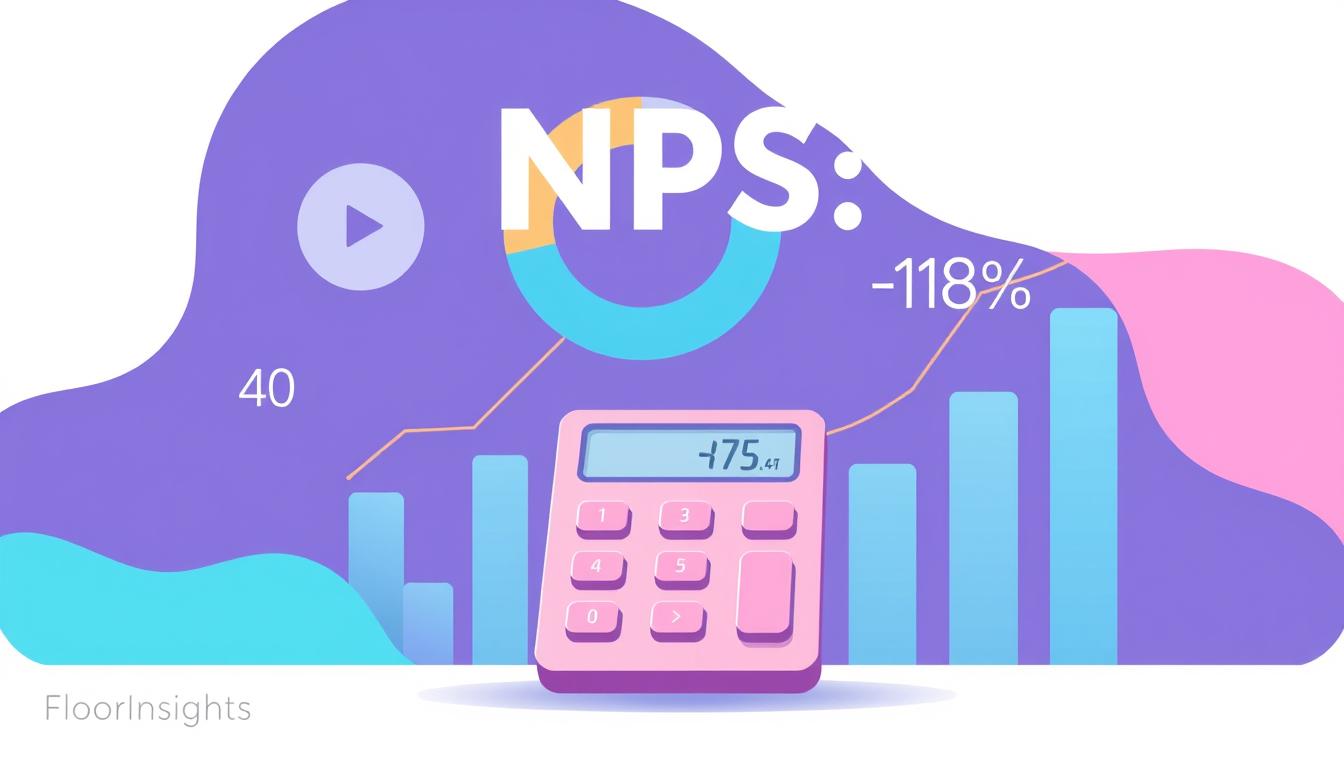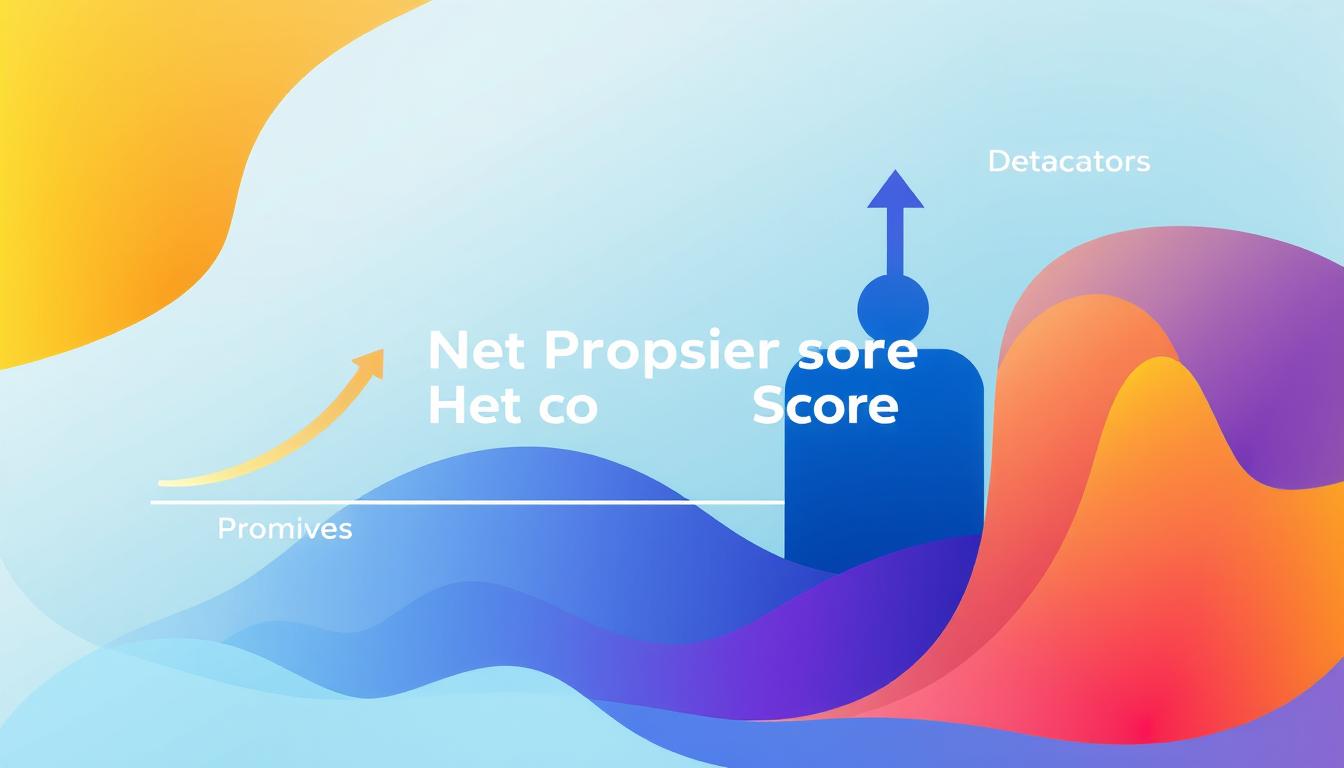As the global business landscape evolves, the importance of understanding and effectively managing customer experience has never been more critical. In the dynamic and diverse markets of India, leveraging the power of Net Promoter Score (NPS) has become a strategic imperative for businesses seeking to drive customer loyalty, brand advocacy, and long-term growth.
This article delves into the challenges and opportunities that emerge when organizations in India’s emerging markets implement NPS. We will explore the significance of this key customer experience metric, navigate the cultural nuances that shape customer sentiment, and uncover strategies to overcome language barriers and build trust with consumers.
Additionally, we will examine how businesses can harness the power of customer feedback, embrace digital transformation, and ensure regulatory compliance and data privacy. By addressing these crucial factors, organizations can position themselves for success and cultivate a loyal customer base that fuels sustainable growth.
Key Takeaways
- Understand the significance of Net Promoter Score in India’s emerging markets
- Navigate cultural nuances and build trust with customers
- Overcome language barriers through effective translation and localization
- Leverage customer feedback to drive innovation and improve customer experience
- Embrace digital transformation and ensure regulatory compliance
- Address data privacy and security challenges with ethical data collection practices
- Foster customer loyalty and brand advocacy for long-term business success
Unveiling the Power of Net Promoter Score
In the realm of emerging markets, the Net Promoter Score (NPS) has emerged as a powerful tool for businesses to gauge customer loyalty and the likelihood of their customers to recommend their products or services to others. This valuable metric provides invaluable insights into the customer experience, enabling organizations to tailor their strategies to better meet the needs of their target audience.
What is Net Promoter Score?
Net Promoter Score is a customer loyalty metric that measures the willingness of customers to recommend a company’s products or services to others. It is calculated based on the response to a single question: “On a scale of 0 to 10, how likely are you to recommend [company/product/service] to a friend or colleague?”
Customers who respond with a score of 9 or 10 are considered “Promoters,” those who score 7 or 8 are “Passives,” and those who score 0 to 6 are “Detractors.” The NPS is then calculated by subtracting the percentage of Detractors from the percentage of Promoters.
Significance in Emerging Markets
In emerging markets like India, the Net Promoter Score holds immense significance. By understanding the sentiment of their customers, businesses can gain valuable insights into the customer experience and tailor their offerings accordingly. This can be particularly crucial in rapidly evolving markets where customer preferences and expectations are constantly shifting.
By consistently tracking their NPS, organizations can identify areas for improvement, address pain points, and foster stronger customer relationships. This, in turn, can lead to increased customer loyalty, positive word-of-mouth, and a competitive edge in the marketplace.
“The Net Promoter Score is a powerful metric that can help businesses in emerging markets like India understand their customers better and improve their overall customer experience.”
Navigating Cultural Nuances
Implementing the Net Promoter Score (NPS) in emerging markets like India requires a deep understanding of the local cultural nuances. The communication styles, decision-making processes, and customer preferences can vary significantly across different regions. To ensure effective customer engagement and accurate feedback collection, businesses must adapt their NPS program to align with the cultural context of the target market.
One crucial aspect to consider is the communication style. In some Indian regions, indirect communication is preferred, where subtle cues and body language play a vital role in conveying messages. This contrasts with more direct communication styles found in other parts of the country. Adjusting the NPS survey questions and prompts to match the local communication norms can greatly impact the quality of customer feedback.
Additionally, the decision-making process in India can be heavily influenced by factors such as family, community, and social status. Businesses should recognize these dynamics and tailor their NPS strategies accordingly. For instance, in certain regions, seeking the endorsement of respected community leaders may be essential for building customer loyalty and encouraging participation in the NPS program.
Furthermore, customer preferences and expectations can vary significantly across India’s diverse landscape. What may be considered excellent customer satisfaction in one region might not align with the expectations of customers in another. Adapting the NPS benchmarks and interpretation to account for these regional differences is crucial for accurately measuring and improving the customer experience.
Effective NPS implementation in India requires a deep understanding of the country’s cultural diversity and a willingness to adapt to local nuances.
By navigating the cultural complexities, businesses can unlock the true potential of the Net Promoter Score in emerging markets like India, fostering stronger customer relationships and driving sustainable growth.
Overcoming Language Barriers
Navigating the diverse linguistic landscape of emerging markets like India can be a daunting challenge for businesses seeking to collect meaningful customer feedback. With multiple regional languages spoken across the country, language barriers can hinder the effectiveness of Net Promoter Score (NPS) surveys and limit the insights gathered from customer feedback.
Translation and Localization Strategies
To overcome these language barriers, businesses must implement robust translation and localization strategies. By translating their NPS surveys and feedback collection tools into the local languages, companies can ensure that their customers are able to engage with the process seamlessly and provide feedback in their native tongues.
Localization goes beyond just translation, as it involves adapting the content, user interface, and overall experience to align with the cultural nuances and preferences of the target market. This includes using colloquial expressions, incorporating regional references, and tailoring the design and layout to resonate with the local audience.
| Strategy | Benefits |
|---|---|
| Translation | Enables customers to provide customer feedback in their native language, improving engagement and participation. |
| Localization | Ensures the translation and overall experience aligns with local cultural preferences, enhancing relevance and trust. |
By implementing these translation and localization strategies, businesses can overcome language barriers and collect more meaningful customer feedback, ultimately driving better decision-making and improved customer experiences in emerging markets.
Building Trust in Emerging Economies
In the dynamic landscapes of emerging markets, earning and maintaining customer trust is paramount. Economic and political instability can create uncertainty, making it crucial for businesses to prioritize transparency, responsiveness, and consistent customer engagement. By fostering an environment of trust, companies can encourage customers to participate in Net Promoter Score (NPS) surveys and provide meaningful feedback, ultimately driving customer retention and brand advocacy.
To build trust in emerging economies, businesses must adopt a multi-faceted approach:
- Transparency: Openly communicate company policies, pricing structures, and product information to establish credibility and demonstrate a commitment to honesty.
- Responsiveness: Promptly address customer inquiries, concerns, and feedback, ensuring that customers feel heard and valued.
- Consistent Engagement: Maintain regular communication with customers through various channels, such as social media, email, and in-person interactions, to foster a sense of connection and loyalty.
By consistently delivering on these trust-building measures, businesses can cultivate a loyal customer base that is more likely to provide valuable feedback through NPS surveys. This feedback, in turn, can be leveraged to drive continuous improvements, further enhancing customer trust, customer retention, and brand advocacy.
“Building trust in emerging markets is not a one-time event, but a continuous journey that requires a deep understanding of local cultures and preferences.”
As businesses navigate the complexities of emerging economies, the ability to foster customer trust will be a crucial differentiator, propelling them towards sustained growth and success.
Net Promoter Score: A Competitive Edge
In the dynamic landscape of emerging markets, businesses that effectively harness the power of Net Promoter Score (NPS) can gain a significant competitive edge. By leveraging customer feedback, organizations can drive continuous improvements in their products, services, and overall customer experiences. This, in turn, can lead to enhanced customer loyalty, stronger brand advocacy, and higher customer lifetime value – all crucial elements in thriving in these rapidly evolving marketplaces.
Leveraging Customer Feedback
The NPS metric provides businesses with a valuable window into their customers’ perspectives. By understanding customer sentiment and identifying areas for improvement, organizations can make data-driven decisions to enhance their offerings and better cater to the unique needs and preferences of their target audience. This deep customer insight enables companies to stay ahead of the curve, anticipating shifting demands and delivering exceptional experiences that foster long-lasting relationships.
| Metric | Impact |
|---|---|
| Customer Feedback | Guides continuous improvements in products, services, and customer experiences |
| Customer Loyalty | Enhances brand loyalty and retention rates |
| Brand Advocacy | Drives positive word-of-mouth and referrals |
| Customer Lifetime Value | Increases the overall value and profitability of each customer |
By leveraging the insights gleaned from NPS, businesses in emerging markets can make strategic investments and adjustments to their customer experience, ultimately gaining a competitive edge in their respective industries.
“Listening to customer feedback and continuously improving the customer experience is the key to building a successful and sustainable business in today’s rapidly evolving markets.”

Embracing Digital Transformation
The rise of digital technologies in emerging markets presents a world of opportunities for businesses to streamline their Net Promoter Score (NPS) programs. By adopting innovative digital platforms and tools, organizations can enhance the customer experience and boost the effectiveness of their NPS initiatives. This digital transformation is crucial for staying ahead in the competitive landscape and delivering exceptional customer experience.
One of the key benefits of embracing digital transformation is the ability to collect and analyze customer feedback in real-time. Digital platforms allow businesses to gather valuable insights from their customers through interactive surveys, online reviews, and social media interactions. This data-driven approach empowers companies to make informed decisions, address customer pain points, and continuously improve their offerings.
Moreover, digital tools enable swift and personalized customer response. Businesses can now leverage chatbots, automated email campaigns, and social media engagement to respond to customer feedback promptly, demonstrating their commitment to customer satisfaction. This rapid and tailored response can lead to increased customer loyalty and advocacy, ultimately driving higher NPS scores.
By embracing digital transformation, businesses in emerging markets can streamline their NPS programs, enhance customer experience, and stay ahead of the competition. This strategic approach not only strengthens customer relationships but also positions the organization as a forward-thinking, customer-centric brand.
| Digital Transformation Strategies | Benefits |
|---|---|
| Implement online customer feedback platforms | Real-time data collection and analysis |
| Utilize chatbots and automated communication | Prompt and personalized customer response |
| Integrate social media for customer engagement | Increased customer loyalty and advocacy |
“Embracing digital transformation is not just about adopting new technologies; it’s about revolutionizing the customer experience and driving business growth in emerging markets.”
By seamlessly integrating digital solutions into their NPS programs, businesses in emerging markets can unlock a competitive edge and stay ahead in the rapidly evolving marketplace. This strategic approach not only enhances customer experience but also positions the organization as a forward-thinking, data-driven leader in their industry.
Regulatory Compliance Considerations
As businesses in emerging markets implement Net Promoter Score (NPS) programs, they must navigate a complex regulatory landscape. Ensuring compliance with data privacy laws and regulations is crucial to maintaining customer trust and safeguarding sensitive customer information collected through NPS surveys.
Regulatory compliance is a top priority when it comes to customer data and data privacy. Emerging markets often have diverse and evolving regulatory frameworks, which can pose challenges for companies looking to implement NPS initiatives. Staying up-to-date with the latest regulatory compliance requirements is essential to avoid potential legal issues and ensure the ethical and secure handling of customer data.
Navigating the Regulatory Landscape
Businesses must be aware of the following key considerations when implementing NPS in emerging markets:
- Understand and comply with local data privacy laws and regulations, such as data protection acts and consumer privacy guidelines.
- Implement robust data security measures to protect customer information collected through NPS surveys.
- Obtain necessary permissions and consents from customers before collecting and utilizing their data.
- Ensure transparent communication with customers about how their data will be used and protected.
- Stay informed about any changes or updates to the regulatory environment and adjust NPS processes accordingly.
By prioritizing regulatory compliance, businesses can build trust with their customers and demonstrate a strong commitment to ethical and responsible data practices. This, in turn, can enhance the overall effectiveness of their NPS programs and drive long-term customer loyalty.
“Regulatory compliance is not just a box to be checked, but a strategic imperative that can differentiate your business in emerging markets.”
Data Privacy and Security Challenges
As emerging markets like India embrace the power of net promoter score (NPS) to drive customer loyalty, the focus on data privacy and security has become paramount. Businesses must navigate the intricate landscape of data protection measures and ethical data collection practices to address customer concerns and foster trust in their NPS initiatives.
Ethical Data Collection Practices
The collection and handling of customer data is a critical component of NPS programs. In India, where data privacy is a growing concern, companies must adopt robust ethical data collection practices to ensure transparency and build customer trust. This includes:
- Clearly communicating the purpose and usage of customer data
- Obtaining explicit consent from customers before data collection
- Implementing strict data security protocols to protect customer information
- Regularly reviewing and updating data privacy policies to align with evolving regulations
By prioritizing data privacy and data security, businesses can cultivate a customer-centric approach that resonates with the Indian market and strengthens their NPS programs.
| Key Considerations for Ethical Data Collection | Best Practices |
|---|---|
| Transparency | Clearly communicate the purpose and usage of customer data |
| Consent | Obtain explicit consent from customers before data collection |
| Data Security | Implement robust security protocols to protect customer customer data |
| Policy Review | Regularly review and update data privacy policies |
By adopting these ethical data collection practices, businesses in India can navigate the challenges of data privacy and data security while leveraging the power of NPS to drive customer loyalty and growth.
Fostering Customer Loyalty
In the dynamic world of emerging markets, businesses must navigate the intricacies of customer loyalty. By leveraging the power of Net Promoter Score (NPS), companies can uncover invaluable insights that drive customer retention, brand advocacy, and ultimately, enhanced customer lifetime value.
NPS is a powerful metric that goes beyond mere customer satisfaction, delving into the deeper realm of customer loyalty. By understanding what motivates customers to become loyal advocates, businesses can tailor their strategies to address the unique needs and preferences of their target audience.
One key strategy in fostering customer loyalty is addressing customer pain points. By actively listening to customer feedback and promptly addressing their concerns, companies can demonstrate their commitment to providing exceptional experiences. This, in turn, fosters a sense of trust and loyalty, leading to increased brand advocacy and a higher customer lifetime value.
Moreover, businesses can leverage NPS insights to continually improve their offerings and customer experiences. By identifying areas of improvement and implementing targeted enhancements, companies can enhance customer satisfaction and solidify their position as a trusted partner in the eyes of their customers.
Ultimately, the pursuit of customer loyalty is a multifaceted endeavor that requires a deep understanding of customer needs, effective communication, and a genuine commitment to providing exceptional value. By embracing the power of NPS, businesses in emerging markets can navigate the complexities of customer loyalty and position themselves for long-term success.
| Metric | Importance | Impact on Business |
|---|---|---|
| Customer Loyalty | Crucial in emerging markets, where customer acquisition is more challenging | Increased customer retention, brand advocacy, and customer lifetime value |
| Net Promoter Score (NPS) | Provides insights into customer loyalty and willingness to recommend the brand | Enables businesses to identify areas for improvement, enhance customer experiences, and foster stronger customer relationships |
| Customer Lifetime Value | Reflects the long-term value of a customer to the business | Helps businesses prioritize customer retention efforts and allocate resources more effectively |
“The true value of a business lies in its ability to create loyal customers who are passionate about the brand and willing to advocate for it.”
Conclusion
As we have explored, implementing Net Promoter Score (NPS) in emerging markets like India presents both challenges and opportunities. By carefully navigating the cultural nuances, overcoming language barriers, and building trust with our customers, we can unlock the full potential of NPS to drive customer loyalty and enhance the overall customer experience.
Through strategic leveraging of customer feedback, embracing digital transformation, and addressing regulatory compliance and data privacy concerns, we can gain a competitive edge in the market. Fostering an environment of trust and transparency will be crucial in strengthening our relationships with our customers and solidifying their loyalty.
As we move forward, our commitment to continuous improvement and a customer-centric approach will be the key to unlocking the power of Net Promoter Score in emerging markets. By staying attuned to the unique needs and preferences of our Indian customers, we can position ourselves as leaders in delivering exceptional experiences and cultivating long-term brand loyalty.
FAQ
What is Net Promoter Score (NPS)?
Net Promoter Score (NPS) is a widely used metric that measures customer loyalty and the likelihood of customers to recommend a product or service to others. It provides valuable insights into customer sentiment, enabling businesses to understand their customers’ experiences and tailor their strategies accordingly.
Why is NPS significant in emerging markets like India?
In emerging markets, NPS can provide businesses with crucial insights into customer sentiment, enabling them to understand their customers’ experiences and tailor their strategies accordingly. By leveraging NPS insights, businesses can drive increased customer loyalty, brand advocacy, and higher customer lifetime value.
How can businesses navigate cultural nuances when implementing NPS in emerging markets?
Implementing NPS in emerging markets requires a deep understanding of cultural nuances. Factors such as communication styles, decision-making processes, and customer preferences can vary significantly across different regions. Businesses must adapt their NPS program to align with the local cultural context to ensure effective customer engagement and accurate feedback collection.
How can businesses overcome language barriers when implementing NPS in emerging markets?
Language barriers can pose a significant challenge in emerging markets like India, where multiple regional languages are spoken. Businesses must implement effective translation and localization strategies to ensure that their NPS surveys and feedback collection processes are accessible and meaningful to their customers.
What strategies can businesses use to build trust in emerging economies when implementing NPS?
Earning customer trust is crucial in emerging markets, where economic and political instability can create uncertainty. Businesses must prioritize transparency, responsiveness, and consistent customer engagement to build trust and encourage customers to participate in NPS surveys and provide meaningful feedback.
How can businesses leverage customer feedback from NPS to gain a competitive edge?
By effectively implementing NPS, businesses in emerging markets can gain a competitive edge. Leveraging customer feedback to drive continuous improvements in products, services, and customer experiences can lead to increased customer loyalty, brand advocacy, and higher customer lifetime value.
How can digital transformation enhance the effectiveness of NPS programs in emerging markets?
The rise of digital technologies in emerging markets presents new opportunities for businesses to streamline their NPS programs. Adopting digital platforms and tools for customer feedback collection, analysis, and real-time response can enhance the overall customer experience and improve the effectiveness of NPS initiatives.
What regulatory compliance considerations should businesses keep in mind when implementing NPS in emerging markets?
How can businesses address data privacy and security challenges when implementing NPS in emerging markets?
Emerging markets like India are increasingly focused on data privacy and security, which can present challenges for businesses implementing NPS programs. Businesses must adopt robust data protection measures and ethical data collection practices to address customer concerns and build trust in their NPS initiatives.
How can businesses foster customer loyalty through their NPS initiatives in emerging markets?
By effectively leveraging NPS insights, businesses in emerging markets can foster strong customer loyalty. By addressing customer pain points, improving experiences, and demonstrating a genuine commitment to customer needs, businesses can drive increased brand advocacy and boost customer lifetime value.






